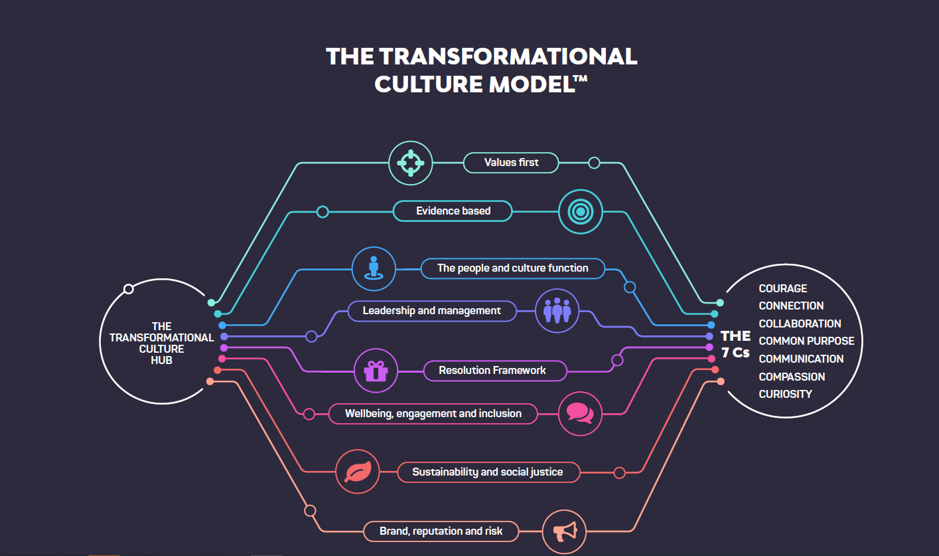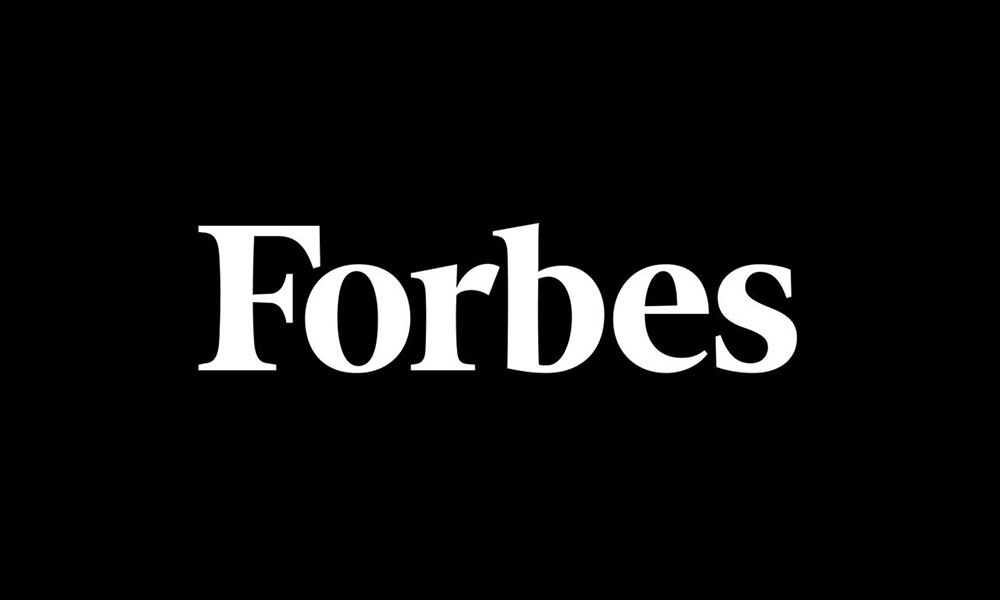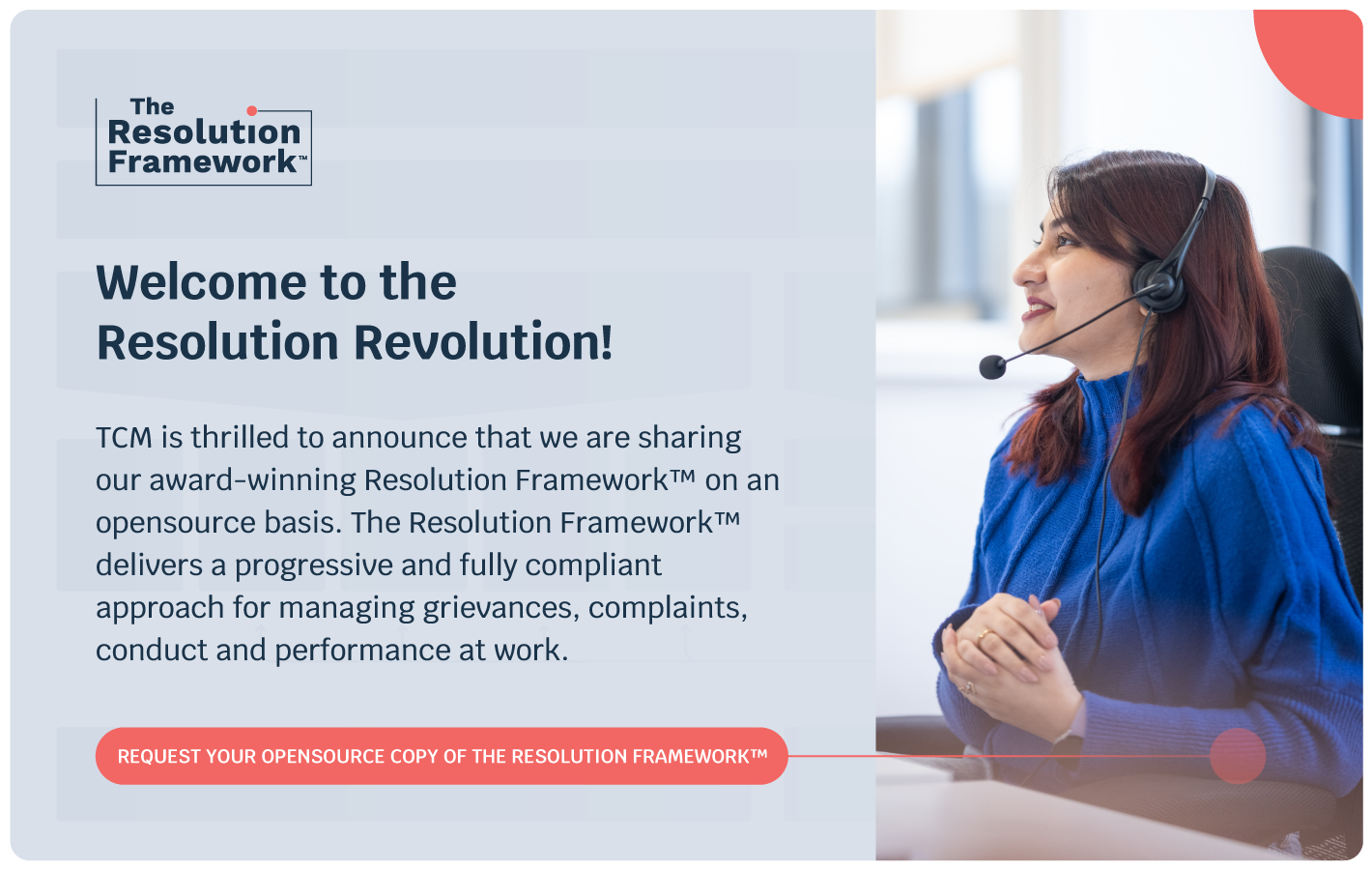
Share article:
Tags:
The third and final webinar in our Transformational Culture series was led by Blair Maxwell, Project Management Consultant for the Transformational Trailblazers initiative, and CEO David Liddle. After understanding the concept and how to develop a business case for culture change, it was necessary to learn how to adopt a truly transformational culture.
Blair Maxwell and Transformational Trailblazers
Prior to working with TCM, Blair held various project management roles at Virgin Atlantic Airways. It was there that he understood the impact of a positive culture – it can take decades to build and seconds to disrupt. If a leader takes their foot off the gas, if the movement loses momentum, or if stakeholders aren’t engaged, culture can fall to disarray in a heartbeat. Ultimately, culture is behaviour at scale. If we value our behaviour, then we should be valuing our culture, too. Promising to put purpose, people and values over process and policy isn’t for the faint of heart – it requires stamina and determination. But when it clicks, it’s the catalyst that can help organisations to thrive in the long term and achieve their strategic objectives. There’s evidence for this: businesses with a strong sense of culture are four times as likely to succeed. We’re on a mission to make every organisation fair, just, inclusive, sustainable and high performing – as long as they’re up for the challenge to work compassionately, courageously and collaboratively.
The first step: the 3D Review
So, you’re up for it? The first step to transformational culture is through discovery, diagnosis and design. It’s bespoke to each individual organisation, acting as a litmus test to then provide a clear pathway and scope for implementation. Stakeholders are kept at the forefront of every process to ensure engagement and buy-in from the outset.
It’s a dialogic and diagnostic approach to:
- Start honest conversations – including focus groups and interviews – to pinpoint the way things are and the way things could be for your company culture.
- Catalyse thoughtful, informed action.
- Outline an evidence-based scope and plan of next steps.
It’s this compelling combination of data and stories that builds a firm business case for organisations to present and support.
Discover
In this very first probe and point of contact, the movement here is from “as is” to “to be”. Organisations are asked to underline their impetus for change and why the present moment is right for a shift in culture focus. It builds a strategic imperative and sketches out the company’s “dream” for ethos, culture and brand.
Diagnose

The Transformational Culture Model’s eight enablers work together to assess the status quo of the organisation. With this landscape in mind, three change readiness catalysts are used to examine attitudes to change, resources available, and current conditions of the environment.
Design
Here, the project moves from current state to dream state. The design phase of the review provides a project timeline with key milestones and deliverables, recommendations to develop such capabilities, and co-creates a system of success measurement.
This human-focused, evidence-based approach reflects the cultural values it implements by being participatory and collaborative from methodology and design to output and implementation. Creating a shared and common understanding at the very beginning allows for trust to be built and buy-in to be secured.
David Liddle and integrating a transformational culture
The foundation of sustained integration is building the Transformational Culture Hub. It’s a coalition that works to drive necessary change, working across trade unions, employee representatives, people and culture functions and leaders. This cross-functional body monitors, governs and provides accountability for the transformational culture model.
Phase 1: the 3D Review
As set out by Blair, this first phase of the project scopes out discovery, diagnosis and design, unique to each organisation’s structure and needs. It typically requires two to six days and identifies opportunities, challenges and objectives.
Phase 2: preparing the ground for a Transformational Culture
This phase prepares the organisation for the integration of a Transformational Culture, including:
- Reviewing outcomes from the 3D Review and agrees the cultural change methodology.
- Signing off the Transformational Culture business case, including ROI measures.
- Delivering a presentation at board and secures sign off from CEO, CPO and chair.
- Undertaking a wider cultural audit and culture mapping exercise.
- Undertaking stakeholder engagement events and developing the communications and engagement strategy.
- Setting up the Transformational Culture Hub and agreeing its modus operandi including reporting governance accountability etc.
Phase 3: deploying the Transformational Culture
This phase is dependent on the outcomes of phases 1 and 2. The services and support available at this stage range include:
- Transformational Culture Hub development and training.
- People and culture strategy development.
- Supporting the transition from HR to people and culture.
- Purpose, values and behaviour framework development.
- Developing a union/employer partnership framework.
- Designing and delivering a leadership and management development programme.
- Resolution Framework™ development and implementation.
- Setting up an internal mediation scheme.
Phase 4: monitoring, evaluation and dissemination
The final phase ensures regular check-ins to measure progress, evaluating the impact and benefits of a transformational culture over a suggested three-year period.
With this clearly phased plan, designed with purpose and values in mind, organisations can begin to build a truly transformational culture. A business that reflects its people, acts courageously, works collaboratively and listens compassionately. The modern workplace? It’s fair, just, inclusive, sustainable and high performing. And it won’t just survive – it’ll thrive.
You can watch the entire session here:
If you’re interested in becoming a transformational trailblazer, you can email David directly here. Alternatively, if you’re ready to tackle workplace culture on your own terms, you can order David’s book here.
Robyn Marsh: Senior Communications Executive at The TCM Group








